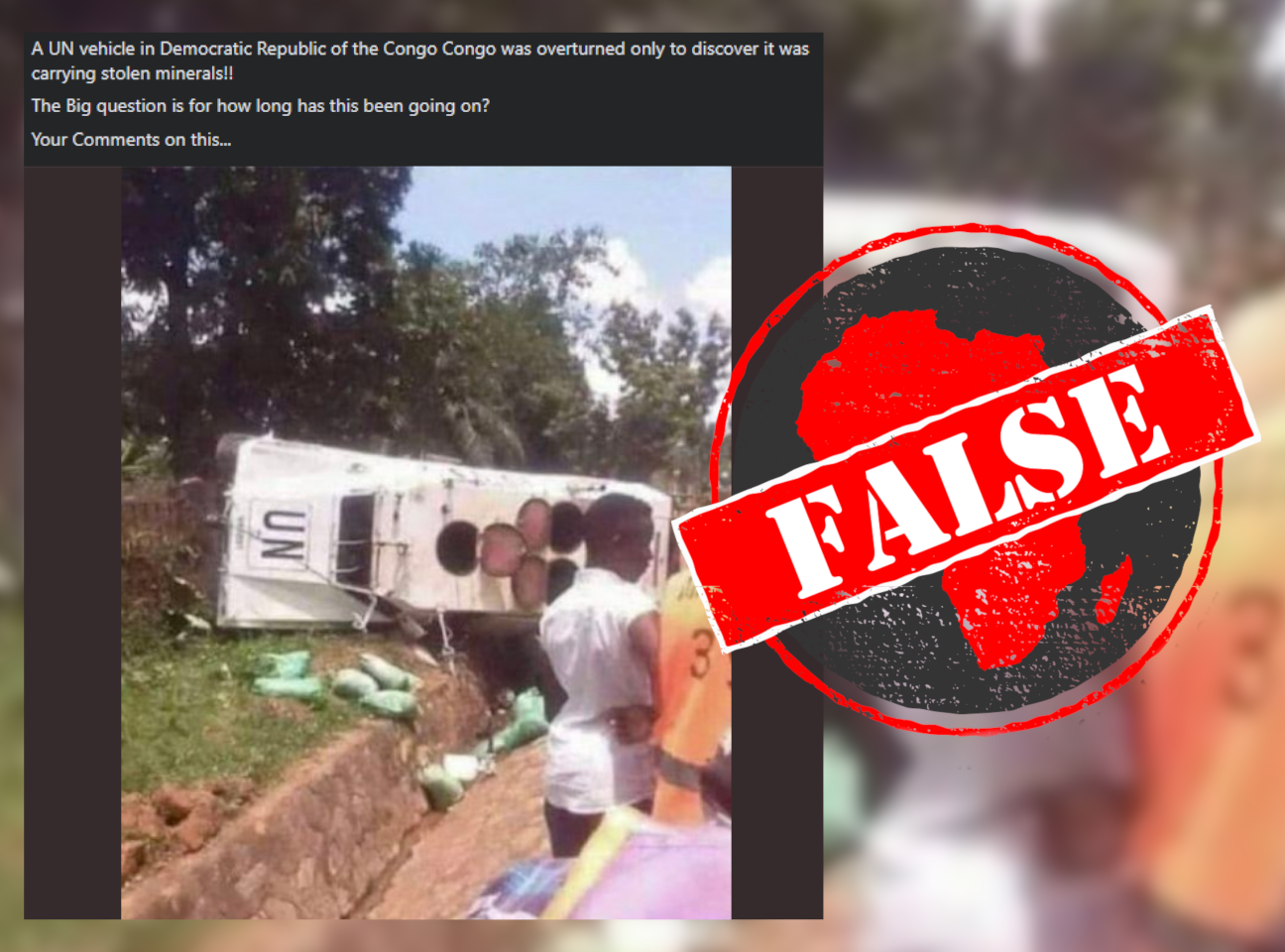IN SHORT: Several posts on Facebook claim that a collapsed United Nations truck in the Democratic Republic of the Congo was carrying stolen natural minerals. But that’s not true; the truck was transporting sandbags.
Several posts on Facebook claim that a United Nations (UN) truck carrying stolen minerals crashed in the Democratic Republic of the Congo (DRC).
One of the posts reads: “A UN vehicle in the Democratic Republic of the Congo was overturned only to discover it was carrying stolen minerals!! The Big question is for how long has this been going on? Your Comments on this.”
Another says: “The UN is just another arm of Western exploiters who rape the land, murder the people, and steal the resources.”
The posts include a photo of a white armoured truck with “UN” written on it, apparently crashed on the side of the road.
The same claim has been made on Facebook here, here, here, here, here, here, here, here and here.
But is the claim true? We checked.

Conflict in the DRC and the UN’s peacekeeping efforts
The UN is a global organisation made up of the governments of 193 countries. Of these, 54 are African countries, including the central African country of the DRC.
The DRC is the largest country in sub-Saharan Africa. It is rich in minerals such as cobalt and copper and has a long history of conflict. It is among the five poorest nations in the world.
Since 1996, conflict has been concentrated in the east of the country. In recent years, the M23 rebel group has seized large parts of the eastern province of North Kivu and encircled Goma, the province’s capital.
In 2010, the UN set up Monusco, a French acronym which can be translated as the UN Organisation Stabilisation Mission in the DRC.
The peacekeeping force is made up of troops from several countries, including South Africa.
Ignore old photo from 2018 accident
Africa Check found that the accident pictured in the viral claim in fact happened on 7 October 2018. According to Congo Check, the truck was carrying bags of sand for military use.
Hoaxbuster.com, an online platform against disinformation, also reported that the truck was carrying bags of sand, not stolen minerals. It overturned in Beni, a city in the North Kivu province of the DRC.
Republish our content for free
For publishers: what to do if your post is rated false
A fact-checker has rated your Facebook or Instagram post as “false”, “altered”, “partly false” or “missing context”. This could have serious consequences. What do you do?
Click on our guide for the steps you should follow.
Publishers guideAfrica Check teams up with Facebook
Africa Check is a partner in Meta's third-party fact-checking programme to help stop the spread of false information on social media.
The content we rate as “false” will be downgraded on Facebook and Instagram. This means fewer people will see it.
You can also help identify false information on Facebook. This guide explains how.


Add new comment